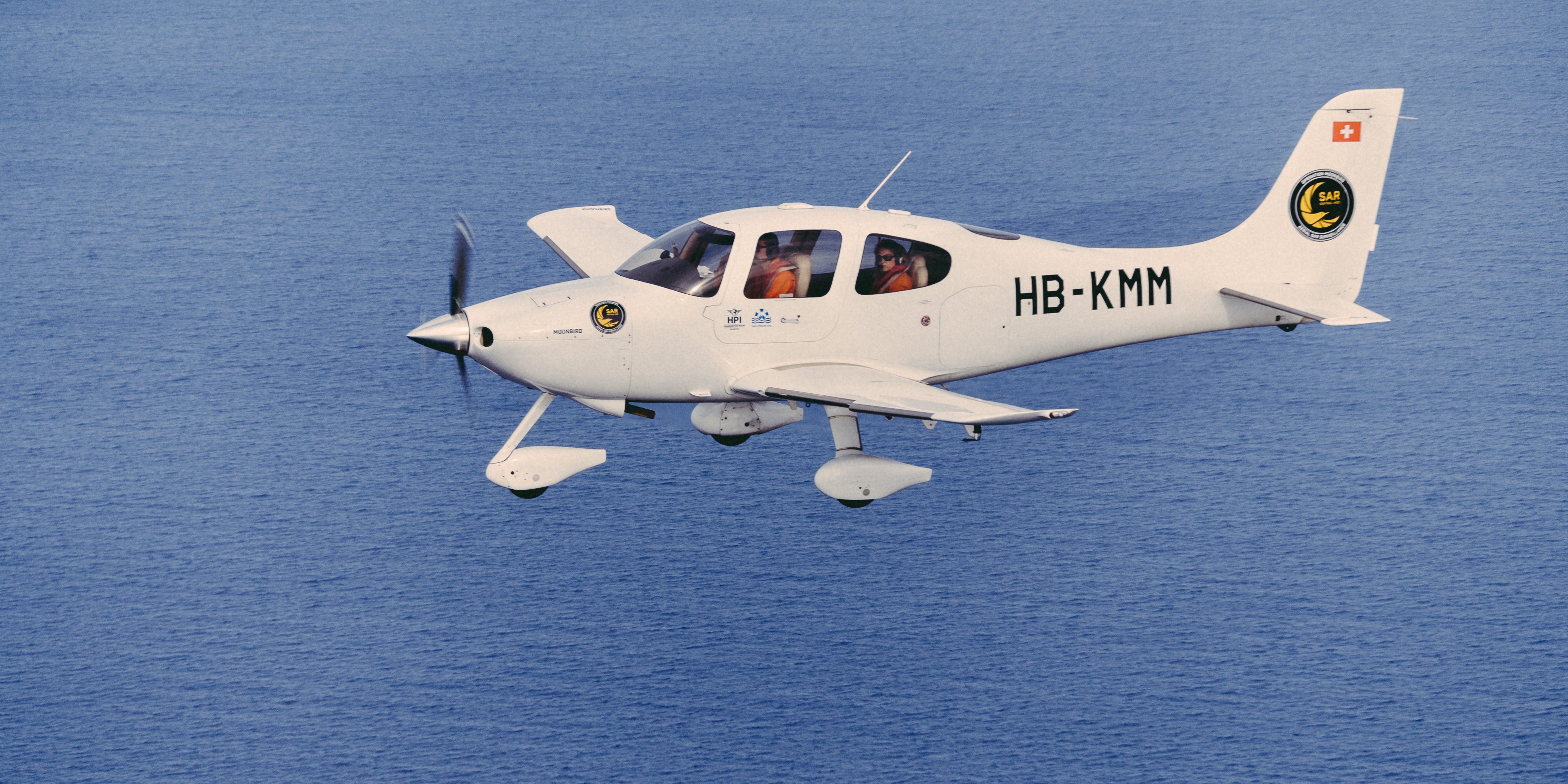More than 3 months, the reconnaissance aircraft Moonbird, operated by Sea-Watch in cooperation with the Swiss Humanitarian Pilots Initiative, was prevented from operation by the Maltese government without providing any legal ground. With the crackdown on civil sea rescue, meanwhile, the death rate at Europe’s sea border reached its record high of one out of five dying while trying to cross. Since this morning, however, our aircraft is back on duty and took off at 0945 UTC from a new operative base, to bear witness of Europe’s deadly border policy and to call for rescue where needed.
“They apparently can confiscate our ships unlawfully, but they will not be able to hide the crime against humanity, that is carried out on the central Mediterranean in the name of the European Union, facilitated by Muscat and Salvini”, says Tamino Böhm, Head of airborne operations within Sea-Watch.
With as many as one out of five drowning in the attempt to flee from North Africa to Europe via Libya, the death rate on the central Mediterranean has never been as high as in these days, when most civil rescue assets are blocked or confiscated, while also governmental sea rescue agencies are not well functioning. What makes the current situation worse than in all the years before, is that nowadays no MRCC is effectively taking care of the coordination of distress cases. Also, merchant vessels often ignore distress cases or actively avoid to be in a position to rescue as they fear to run into trouble since Europe closed its port to vessels that had rescued migrants or refugees in maritime distress.
“We will not back down from challenging Europe’s policy of leaving people to drown. Our mission became more important than ever, now, that the Mediterranean Sea has turned into a deadly black box in which not only human rights are violated on a daily basis, but also men, women and children disappear without anyone taking notice. This is why we will do everything in our hands to give evidence and to enforce rescue”, says Moonbird initiator Ruben Neugebauer. The new operation is much more complex regarding logistics and more expensive than it used to be from Malta, however, the aircraft will be able to cover a big part of the central Mediterranean Search and Rescue area.











